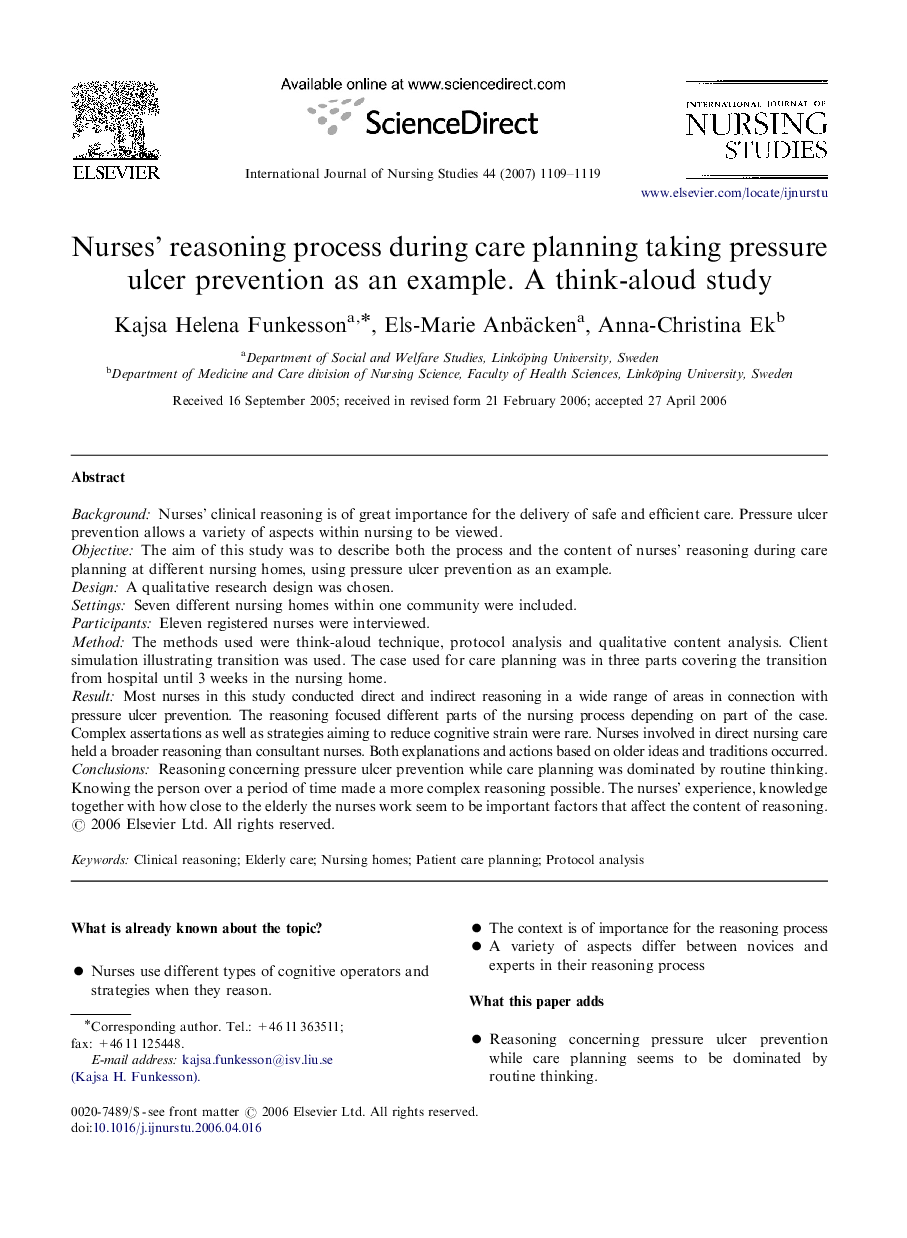| Article ID | Journal | Published Year | Pages | File Type |
|---|---|---|---|---|
| 1077515 | International Journal of Nursing Studies | 2007 | 11 Pages |
BackgroundNurses’ clinical reasoning is of great importance for the delivery of safe and efficient care. Pressure ulcer prevention allows a variety of aspects within nursing to be viewed.ObjectiveThe aim of this study was to describe both the process and the content of nurses’ reasoning during care planning at different nursing homes, using pressure ulcer prevention as an example.DesignA qualitative research design was chosen.SettingsSeven different nursing homes within one community were included.ParticipantsEleven registered nurses were interviewed.MethodThe methods used were think-aloud technique, protocol analysis and qualitative content analysis. Client simulation illustrating transition was used. The case used for care planning was in three parts covering the transition from hospital until 3 weeks in the nursing home.ResultMost nurses in this study conducted direct and indirect reasoning in a wide range of areas in connection with pressure ulcer prevention. The reasoning focused different parts of the nursing process depending on part of the case. Complex assertations as well as strategies aiming to reduce cognitive strain were rare. Nurses involved in direct nursing care held a broader reasoning than consultant nurses. Both explanations and actions based on older ideas and traditions occurred.ConclusionsReasoning concerning pressure ulcer prevention while care planning was dominated by routine thinking. Knowing the person over a period of time made a more complex reasoning possible. The nurses’ experience, knowledge together with how close to the elderly the nurses work seem to be important factors that affect the content of reasoning.
